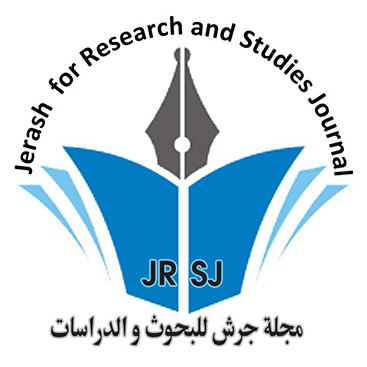Jerash for Research and Studies Journal مجلة جرش للبحوث والدراسات

Abstract
Tomato yellow leaf curl virus (TYLCV) is considered as one of the most important viruses on tomato in both protected and open field cultivation in Iraq . Several trials were carried out to limit the losses caused by this virus through the use of insecticides to control Bemisia tabaci. Vector of this virus. Also, several kinds barrier plants were used to limit the movement of the vector and clean it out of the virus before its arrival to tomato plants . This study was designed to determine the effect of alcoholic extracts of henna (lawsonia inermis) thuja (thuja orientalis) and Tamarisk (Tamarisk brachystachy) on the multiplication of TYLCV in tomatoe. The virus multiplication was followed by immune-double diffusion test. The antiserum of TYLCV was obtained by inccting 1.72mg of virus in arabbit at four times (0.43 mg / m) for each ) two intravenously without freund adjuvant and two intamuscularty with an equal volume of incomplete freund adjuvant at intervals of one week. Results showed that effective concentration of Henna and Tamarisk extract was 4000 ppm with protective period of 10 days , where as that for Thuja extract was 3000 ppm with protective period of 12 days . No effect on the plants growth due to the application of the extracts was observed
Recommended Citation
Al-Ani, Raqeep and Hassan, Samir
(2005)
"The Effect of Henna and Tannins Extracts on Multiplying the Virus of Wrinkling and Yellowing of Tomato Leaves,"
Jerash for Research and Studies Journal مجلة جرش للبحوث والدراسات: Vol. 6:
Iss.
2, Article 4.
Available at:
https://digitalcommons.aaru.edu.jo/jpu/vol6/iss2/4

